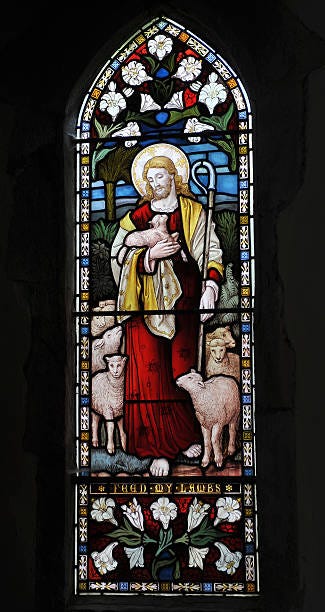Psalm 23:5-6 the table is set, the enemy awaits
You prepare a table before me in the presence of my enemies
If you were to sit at dinner with your enemies, who are you picturing at the table?
Who would Jesus picture at his table? I think he’d picture me.
…we were God’s enemies, we were reconciled to him through the death of his Son…
Romans 5:10
Jesus ate with Judas for three years. In Luke 22, Satan entered Judas (maybe it’s hyperbole, maybe it’s literal. Who can say?) and then Judas had the Passover with Jesus. But Matthew 26 has Judas leaving before the actual first Eucharistic bite, so phew. But still a meal with an enemy. Was the last supper the table prepared in the presence of Jesus’s enemies?
Jesus eating in the presence of his enemies could be speaking to reconciliation. Every time we take the Eucharist, we proclaim Christ’s death until he returns. Every time we take the Eucharist, we admit we were once enemies and need God to reconcile us to himself. Without him initiating reconciliation, we are still enemies.
Maybe the table in the presence of his enemies is speaking to that time he ate with the Pharisees in Luke 7:36–50. Or maybe the time in Mark 14:3–9 where a woman anointed his head. Jesus was anointed for ministry at his baptism and here he was anointed for his death.
What is the cup of my cup overflows.
Initially, we might read that to mean that I have an endless supply of resources or sustenance. But when I read it from the point of view of Jesus, I’m immediately brought to the Mount of Olives where Jesus asks for this cup to be taken away. Probably the cup of wrath. Maybe we can read ‘my cup overflows’ as not necessarily a good thing. The burden of eating with one’s enemies is that now the cup of wrath overflows.
[Hesed is a Hebrew word which is difficult to translate. It means something like loving-kindness, mercy, love etc]
Maybe the next phrase of “surely goodness and hesed will follow me…” means that the cup is goodness but maybe it’s a juxtaposition. Maybe the next phrase of “surely goodness and hesed will follow me…” means that the cup is the opposite: My cup overflows with sadness but I know goodness will follow. Maybe it means that I feel rejected by God right now, but I am going to remember his promises that even this is a loving-mercy (hesed) and joy will come in the morning (Psalm 30:4).
Because of the Lord’s great hesed we are not consumed, for his compassions never fail. They are new every morning; great is your faithfulness.
Lamentations 3:22–23.
The Lord is faithful.
But what if the cup is the cup of the lamb? The Eucharistic cup? What if when Jesus sees his cup overflow he's seeing the fulfillment of the Abrahamic promise of endless descendants? What if Jesus is saying my cup of forgiveness is overflowing because of how many are repenting?
1 Corinthians 11:23-26
For I received from the Lord what I also passed on to you: The Lord Jesus, on the night he was betrayed, took bread, and when he had given thanks, he broke it and said, “This is my body, which is for you; do this in remembrance of me.” In the same way, after supper he took the cup, saying, “This cup is the new covenant in my blood; do this, whenever you drink it, in remembrance of me.” For whenever you eat this bread and drink this cup, you proclaim the Lord’s death until he comes.
Because Jesus endured and proved to be the better Adam, he will dwell in the house of the Lord forever. He is the reigning King. He invites his enemies to dwell in his house as well. To dwell in his house, you must enter his kingdom - the one we studied earlier in the Sermon on the Mount. To dwell in the house of the Lord, be loving and kind. Mercy brings you into his house.
One thing I ask from the Lord, this only do I seek: that I may dwell in the house of the Lord all the days of my life, to gaze on the beauty of the Lord and to seek him in his temple.
Psalm 27:4
I just really like Psalm 27. I want to dwell in the house of the Lord. I want to take refuge in God. Typically, when I think of “taking refuge,” I think of running away from something: an enemy or a natural disaster. But I want to suggest that I (and maybe you) should start taking refuge even in the highs of life. Apart from him, all my good things are empty. To take refuge in God, even in the goodness and hesed, I praise the Lord and show gratitude for all that he’s given me. I thank God for all that I take for granted. Life is fragile. How can you take refuge in God right now?





